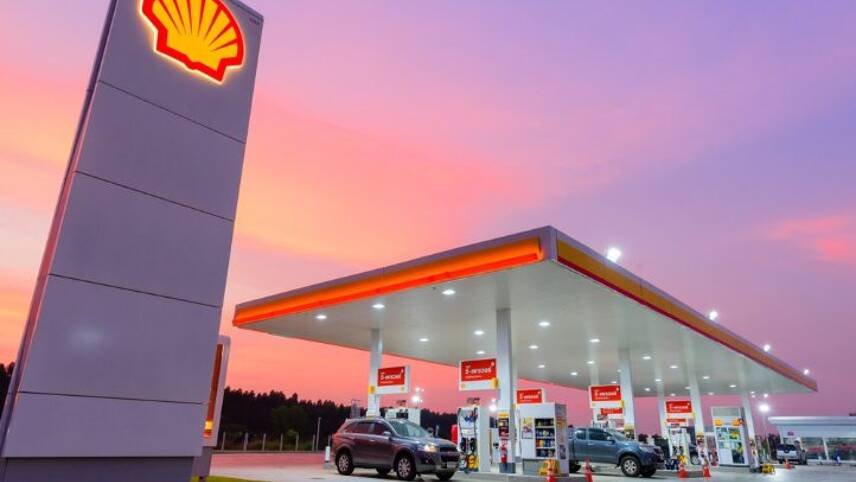Register for free and continue reading
Join our growing army of changemakers and get unlimited access to our premium content

Shell is one of just two European energy giants to have set long-term carbon reduction targets which account for indirect emissions
The move was confirmed in the oil and gas giant’s annual report, which includes the company’s first three-year emissions reduction target. Effective as of 1 January 2019, the commitment is to deliver a 2-3% reduction of the company’s overall carbon footprint against a 2016 baseline.
The aim covers Shell’s direct and indirect emissions, accounting for its extraction processes and emissions generated through consumer use of its products, as well as its operations.
Published on Thursday (14 March), the report states that Shell will bolster this three-year target in 2020, setting a more ambitious target through to 2023, before setting increasingly tougher targets every three to five years thereafter. Such aims will build on the firm’s existing long-term goals of reducing the carbon footprint of its energy products by 20% by 2035, rising to 50% by 2050.
‘Dual challenge’
Additionally, the document confirms that Shell’s next annual report will be produced in line with the recommendations of the Task Force on Climate-related Financial Disclosures (TCFD), completing scenario analysis mapping and promoting senior management engagement on climate-related issues.
“Society faces a dual challenge: how to transition to a low-carbon energy future to manage the risks of climate change, while also extending the economic and social benefits of energy to everyone on the planet,” Shell’s chief executive Ben van Beurden writes in the report.
“We believe that the need to reduce greenhouse gas emissions, which are largely caused by burning fossil fuels, will transform the energy system in this century. This transformation will generate both challenges and opportunities for our existing and future portfolio.”
The report highlights the fact that Shell has “supported” the 2C aim of the Paris Agreement since it was ratified in 2015, reaffirming its ongoing ambition of setting a science-based target. But the energy giant additionally notes that, in the wake of the Intergovernmental Panel on Climate Change’s landmark report, it “agrees” with the need to “transform” the global economy to achieve a 1.5C pathway.
“Meeting this challenge would require an even more rapid escalation in the scale and pace of change in the coming decades than was foreseen in the Paris Agreement,” the document states.
Investor reaction
The measures outlined in Shell’s report have been broadly welcomed by investor group Climate Action 100+, which has been lobbying for the firm to set decarbonisation goals in line with a 2C trajectory for several months. Shell last year signed a joint agreement with the group, which represents companies with more than $33trn in assets under management (AUM) collectively, pledging to set more ambitious targets and lead the rest of the oil and gas sector in the low-carbon transition.
Climate Action 100+ steering committee lead Stephanie Pfeifer said the new report serves as evidence that Shell is making progress towards setting an approved science-based target in the near future.
“Setting the first interim target early and linking it to executive remuneration demonstrates commitment to deliver on the agreement reached with investors as part of Climate Action 100+,” Pfeifer said. “We look forward to further steps from both Shell and others in the sector.”
Climate progress
As one of just two European energy giants to have set long-term carbon reduction targets which account for indirect emissions (the other being Total), Shell is widely regarded as a leader in the energy sector’s transition away from coal, oil and gas.
The firm is a member of The Carbon Trust’s Offshore Wind Accelerator (OWA) scheme, for example, which sees businesses commit to funding research and development of technology that will reduce the cost of offshore wind. As part of that scheme, Shell is working alongside the likes of E.ON, Ørsted and the Scottish Government to develop industry best practice and trigger the development of new standards.
Within its own operations, Shell has installed rapid electric vehicle (EV) charging points and hydrogen cell refuelling facilities at some of its petrol station forecourts. The company has also invested heavily in a number of smaller low-carbon ventures in recent times as it seeks to green its portfolio, including onsite renewables firm Cleantech Solar, smart energy storage startup Sonnen, EV charging network NewMotion and ‘virtual power plant’ host Limejump.
However, the firm did also confirm last year that it would re-invest in North Sea projects for the first time in six years – a move that will increase its UK oil production by a third.
Sarah George


Please login or Register to leave a comment.